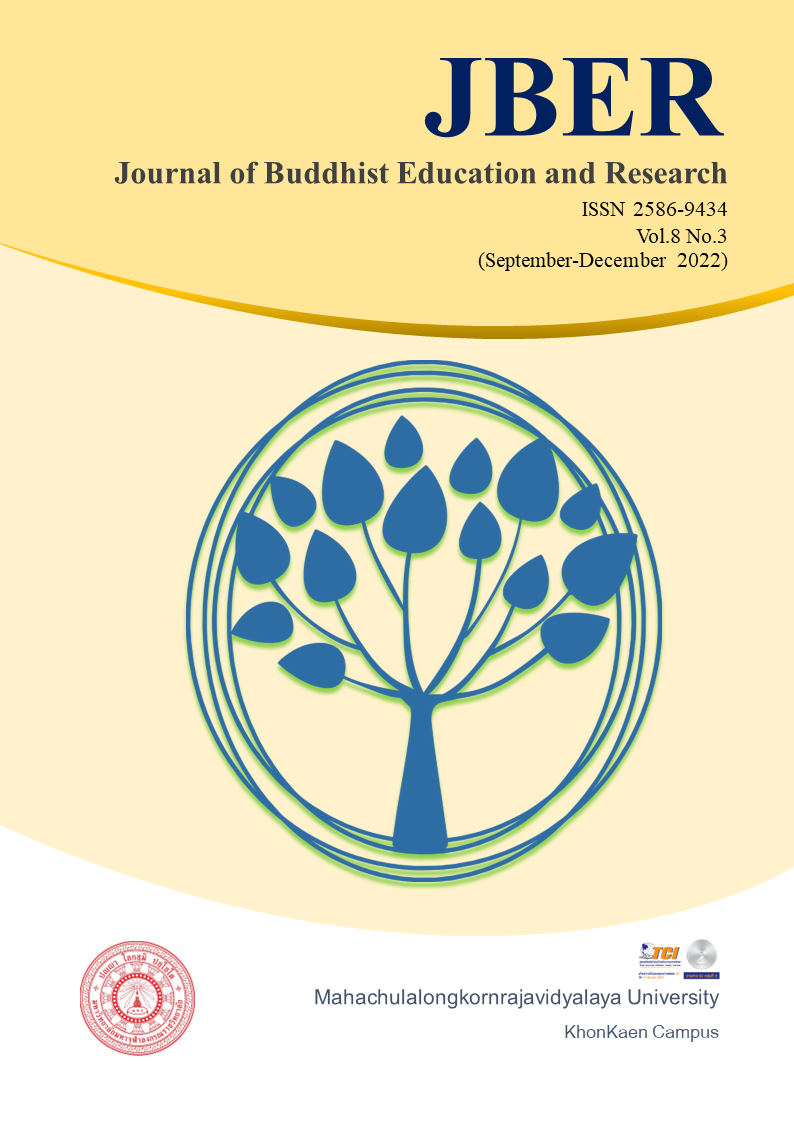THE AWARENESS OF ONLINE SOCIAL MEDIA TO PROMOTE THE DIGITAL CITIZENSHIP
Keywords:
the awareness of online social media, the digital citizenshipAbstract
The objectives of this research were: 1) to study social media literacy to promote digital citizenship; 2) to study the effects of knowledge building social media literacy to promote digital citizenship. The population of this included the students of Suan Sunandha Rajabhat University, semester 1, academic year 2020. The selected students as sample group were 60 of those in Communication Arts, Faculty of Management Science, selected by Purposive Sampling. The research finding revealed that the overall opinions of the students about their use in media literacy at the highest level (= 4.23, S.D. = 0.46). This suggested that research results should be used as a guideline for teaching and learning, and organizing student development activities to enhance social media literacy skills which will form a protective shield or self-immunity.
References
บุษรา ประกอบธรรม. (2563). การศึกษาการยอมรับเครือข่ายสังคมออนไลน์ของนักศึกษา:กรณีศึกษา มหาวิทยาลัยกรุงเทพ. มหาวิทยาลัยกรุงเทพ.
ประพรรธน์ พละชีวะ. (2558). แนวทางการพัฒนาการใช้สื่อการเรียนการสอนของครูในโรงเรียนสังกัดสำนักงานเขตพื้นที่การศึกษามัธยมศึกษา เขต 17. โครงการวิจัยนี้ได้รับทุนสนับสนุนจากกองทุนวิจัย มหาวิทยาลัยราชภัฏรำไพพรรณี ประจำปีงบประมาณ
สุชาดา จักรพิสุทธิ์. (2547). ชุมชนกับการมีส่วนร่วมจัดการศึกษา. วารสารศึกษาศาสตร์
มหาวิทยาลัยขอนแก่น, 27,18-23.
สุภารัตน์ แก้วสุทธิ. (2553). พฤติกรรมการใช้อินเทอร์เน็ต การรู้เท่าทันสื่อ และพฤติกรรมการป้องกันตัวเอง จากการละเมิดสิทธิส่วนบุคคลทางอินเทอร์เน็ต. วิทยานิพนธ์ (นศ.ม.) จุฬาลงกรณ์มหาวิทยาลัย.
Carol Soonand Shawn Goh. (2018). FAKE NEWS, False information and more: Countering
Human Biases. Institute of Policy Studies, NationalUniversity of Singapore.
Gelfert, Axel .(2018).Fake news: a definition. Informal Logic, Vol. 38, No.1 (2018), pp. 84–
.
Rasmus K. Nielsen and Lucas Graves. (2017). News you don’t believe Audience perspectives
on Fake news. Reuters Institute.
Zeenab Aneez, Taberez Ahmed Neyazi, AntonisKalogeropoulos, and Rasmus Kleis Nielsen.
(2019). India Digital News Report. Reuters Institute.





